Lorena A. Barba group

Loading...
Boeing Distinguished Colloquium, University of Washington
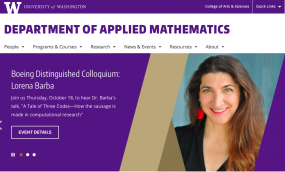
Prof. Barba gave a Boeing Distinguished Colloquium at the Department of Applied Mathematics, University of Washington, Seattle. Her talk was titled "A Tale of Three Codes—How the sausage is made in computational research." Abstract: Relating the story of three research codes we’re working on in my lab, I will illustrate the sometimes tortuous progress of... Continue »
Open Source Software Policy Options for NASA Earth and Space Sciences
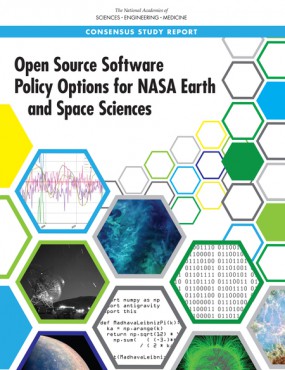
Prof. Barba is a co-author of the National Academies study report "Open Source Software Policy Options for NASA Earth and Space Sciences," presented to NASA on Sept. 21, 2018. The report is outcome from several in-person meetings, dozens of submitted white papers, and months of collaborative writing. The set of recommendations issued by the committee are... Continue »
Jupyter-based courses in Open edX: Authoring and grading with notebooks
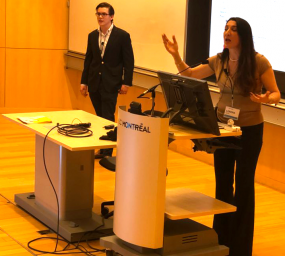
On May 30th, Prof. Barba presented at the Open edX Conference, together with Miguel Amigot II, CTO of IBL Education, the recent work to integrate Jupyter with the Open edX platform. The talk showcased two new Open edX extensions (XBlocks): one for pulling content into a course from any public Jupyter notebook (from its URL),... Continue »
Lorena Barba interviewed at O'Reilly JupyterCon 2017
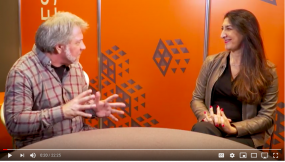
Highlights How I got started using Jupyter for teaching: I met Fernando Perez at a workshop, where he gave a talk about IPython notebooks, and immediately I knew I wanted to use this in my classes. I have used them in my classes ever since. First, in my Computational Fluid Dynamics (CFD Python) at Boston... Continue »
Tutorial for high-school students at GW
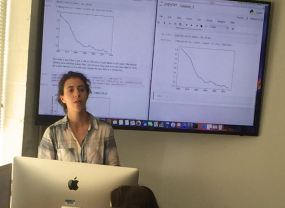
PhD student Natalia Clementi and Prof. Barba taught a 3-hour tutorial for high-school students for the Caminos Al Futuro program of the GW Cisneros Hispanic Leadership Institute. It was a hands-on tutorial titled "Data Science for a Better World," and it guided the students through the basics of using Python with data. The students, who had never... Continue »
Nature TechBlog: My digital toolbox

Jeffrey Perkel, Technology Editor for Nature, interviewed Prof. Lorena A. Barba about her research group's reproducibility practices and the digital tools that enable them. She talked about the group's computational research interests, their avant-garde use of digital tools and repositories to create "repro-packs," and how these allow her to share research figures freely even when part... Continue »